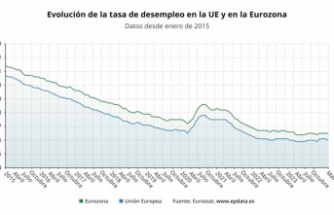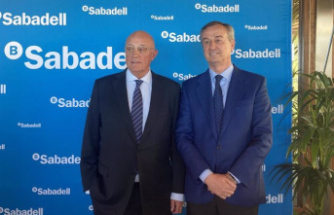More than 100 people signed up last month to talk about Mosaic's request to expand its phosphate mine by more than 3,000 acres. But many really wanted to talk about the sinkhole.
4 Months Ago
4 Months Ago
3 Months Ago
Over and over they brought up the sinkhole that opened up beneath the company's Mulberry's plant in August. They saw the sinkhole as an argument against approving Mosaic's zoning change request.
They contended that Mosaic's three weeks of silence about the sinkhole problem made them unwilling to trust the company's promises to be a good environmental steward.
"It's a matter of time before there's another accident we can't correct," said Mark Manning, who belongs to a group called Stand Up Fight Back SRQ.
This discussion didn't take place in Polk County, where the sinkhole occurred. Instead, it took place about 50 miles south, across the Sunshine Skyway bridge, in Manatee County.
The sinkhole, which drained 215 million gallons of contaminated water into the aquifer, has become a hard-to-remove mark on Mosaic's carefully crafted corporate image.
The opposition Mosaic faces in Manatee could be a sign of things to come for the world's largest phosphate company. The company's first post-sinkhole political test will be winning approval for the mine expansion from the Manatee County Commission in a vote slated for Feb. 15.
• • •
The Fortune 500 company frequently runs television ads in which it vows "to always take our commitment to the environment seriously."
It has a strong presence in the Tampa Bay region, supporting county fairs, local parks and museums. It owns a bird sanctuary and sponsors Audubon programs, the Mote Marine Laboratory's fish hatchery and the Marie Selby Botanical Gardens' children's rainforest exhibit.
Then came the sinkhole.
Mosaic employees first discovered a sinkhole draining the phosphogypsum stack at the Mulberry plant near the Hillsborough-Polk county line on Aug. 27. The sinkhole continued swallowing the pond of contaminated water that had been atop the stack until the pond was completely drained Sept. 6.
The acidic water that fell into the hole was laced with sulfate and sodium. The acid level is roughly equivalent to vinegar or lemon juice. An unknown amount of gypsum, a fertilizer byproduct with low levels of radiation, also fell in.
The company quickly notified the Florida Department of Environmental Protection, the federal Environmental Protection Agency and Polk County officials. But no one told the plant's neighbors or the public what had happened until three weeks later, when a TV reporter got wind of the disaster.
Mosaic officials subsequently apologized for the secrecy. They also took a quiet step back in Manatee County.
The news about the sinkhole broke Sept. 15. The Manatee County Commission had been scheduled to hear the zoning change request from on Sept. 29.
At Mosaic's request, the hearing was postponed to January. A company spokeswoman denied that the postponement was due to public outrage over the 215 million gallons of contaminated waste that fell into the aquifer.
The four-month delay did nothing to quell opposition to the zoning request at last month's public hearing.
Instead, the opposition "seems to have gotten some momentum," said Andy Mele of the environmental group Suncoast Waterkeeper, a critic of the mine expansion.
• • •
The public hearing that convened on Jan. 26 drew so many speakers — 120 signed up to speak, 75 actually spoke — that it had to be continued to another day. The second day of testimony on Jan. 30 continued until after 6 p.m., so the commissioners did not vote. They postponed the vote until Wednesday.
A handful of speakers touted Mosaic's contributions as a good corporate citizen.
"You can count on Mosaic to do what they promise," Philip Brown, president of the United Way of Manatee County, told the commissioners.
But nearly every speaker at the two hearings who opposed changing the zoning from agriculture to mining brought up the sinkhole.
Mosaic officials contended that one has nothing to do with the other.
"This event is not related to the mining expansion," David Jellerson, Mosaic's senior director of environmental and phosphate projects, told the commissioners and the crowd.
He pointed out that Manatee County's geology is different from that of Polk County, and so sinkholes are fairly rare there. Despite the delay, the company made no changes in its zoning request after the sinkhole occurred.
Mosaic officials contend that because there will be no gypsum stacks in Manatee County, that's not what the commissioners should be considering.
"The decision before the county is whether or not our request complies with the county comprehensive plan, land development code and mining ordinance," company spokeswoman Eileen Stuart told the Tampa Bay Times.
"We believe we have made a strong case that it does. This request is also consistent with what the county has determined to be in compliance in the past."
• • •
If commissioners vote to reject Mosaic's request, they may face a court challenge.
In 2008, Manatee County commissioners voted 4-3 to reject a Mosaic request to mine for phosphate rock on land in the headwaters of the Myakka River and Horse Creek. The company sued the county for $617 million, contending the decision amounted to the government taking its property without compensation.
The county later reversed course and Mosaic dropped the lawsuit.
Mosaic's proposed mining expansion had already sparked controversy before the sinkhole occurred because it will destroy nearly 650 acres of wetlands and ruin habitat for such imperiled species as wood storks, sandhill cranes, scrub jays, burrowing owls and gopher tortoises. In addition to the zoning change, the company needs permission to mine in an area that's supposed to be set aside to protect the Peace River watershed from pollution.
Mosaic officials have promised to restore the wetlands when they're done mining that property in 2037.
But during a round of lawsuits over a prior expansion, a judge looked at how well phosphate miners had been able to replace destroyed wetlands. Most of the man-made wetlands the miners created were not functioning as a natural swamp, he wrote, "despite the fact that most of them have been in existence for more than 15 years."
Mosaic's challenge in Manatee could be repeated across the region.
The company is currently mining phosphate rock on more than 70,000 of the 380,000 acres it owns in Manatee, Hillsborough, Polk and Hardee counties. But it has plans to expand its mining by an additional 40,500 acres in Hardee and DeSoto counties.
Contact Craig Pittman at craig@tampabay.com. Follow @craigtimes.
Our editors found this article on this site using Google and regenerated it for our readers.













